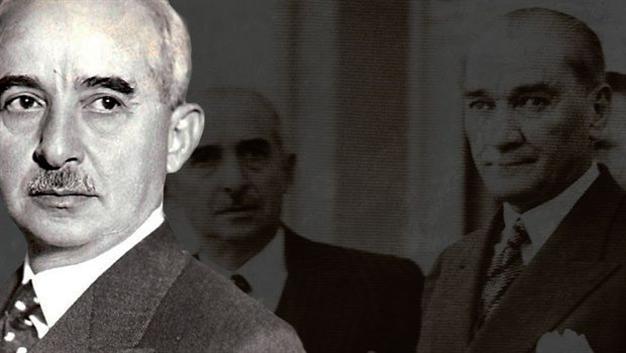Turkish daily’s ‘Atatürk was poisoned by successor’ claim mocked, condemned
ISTANBUL

İsmet İnönü (L) and Mustafa Kemal Atatürk (R)
A staunchly pro-government newspaper has stirred controversy by claiming that the founder of modern Turkey, Mustafa Kemal Atatürk, was poisoned by his long-time comrade İsmet İnönü, provoking condemnation and irking the latter’s successor’s family.After Atatürk died on Nov. 10, 1938 at the age of 58 due to health problems, İnönü was elected as Turkey’s second president.
Daily newspaper Yeni Şafak published a number of allegedly genuine “documents” on April 6, saying they proved that Atatürk was poisoned by the leaders of Turkey’s then-ruling Republican People’s Party (CHP), including İnönü, one of the founding fathers of the Republic.
Gülsün Bilgehan, a granddaughter of İnönü and a deputy from the main opposition CHP, told daily Hürriyet on April 6 that the İnönü Foundation and the late statesman’s family will sue daily Yeni Şafak for this “utter nonsense.”
“Those who made this story are actually the ones who try to poison the Turkish people. But whatever they do they cannot succeed due to this country’s love for the founders of the Republic,” Bilgehan said.
After the Yeni Şafak report, opposition daily Cumhuriyet claimed that its example “could be taught in journalism schools on the subject of fabricating news,” and reported that the documents do not resemble authentic memos of the CHP from the time.
Although Yeni Şafak’s “documents” were allegedly typewritten in 1962, Cumhuriyet also noted that they included many modern Turkish words, and were typed in the Windows 7 Tahoma italic font, which was only created for computers in 2009.
Yeni Şafak had similarly published controversial “documents” on March 30, claiming that the government’s erstwhile ally Fethullah Gülen, a U.S.-based Islamic cleric, was actually a Freemason.
The Grand Lodge of Free and Accepted Masons of Turkey later denied the reports, saying there were “hints of fabrication” in the documents allegedly produced in 1972 and 1976.
















